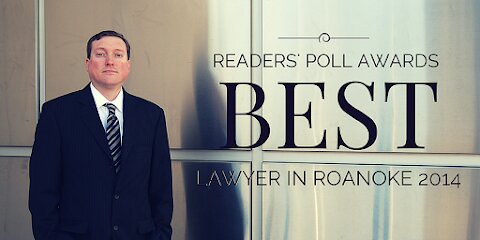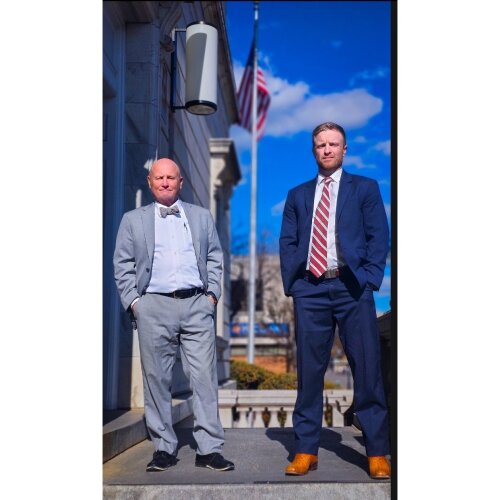Best Defamation Lawyers in Alabama
Share your needs with us, get contacted by law firms.
Free. Takes 2 min.
Or refine your search by selecting a city:
List of the best lawyers in Alabama, United States
About Defamation Law in Alabama, United States
Defamation is a legal term that refers to making false statements about another person or entity that harms their reputation. In Alabama, defamation law is based on a combination of state statutes and court decisions. Defamation can be divided into two categories: libel, which involves written statements, and slander, which involves spoken statements. Alabama provides a legal avenue for individuals who have been harmed by defamatory statements to seek compensation through the courts. It is important to understand that not all negative statements are considered defamation especially if they are opinions or truthful statements. The key element of defamation in Alabama is that the statement must be false and made with some degree of fault.
Why You May Need a Lawyer
There are several situations where hiring a lawyer for a defamation case in Alabama is highly beneficial. If you believe someone has made a false statement about you or your business which has caused you reputational or financial harm, a legal professional can advise you on your rights and whether you have a viable claim. Conversely, if you have been accused of defamation, it is important to seek legal counsel to defend your rights and understand possible defenses. Legal help is also critical if the case involves complexities such as media outlets, public figures, or if you are unsure how to prove damages. Additionally, a lawyer can assess your case, help gather evidence, and represent you in negotiations or court proceedings.
Local Laws Overview
Alabama defamation law includes several key elements that must be proven for a successful claim. The plaintiff must show that a false and defamatory statement concerning them was made to a third party, that the person making the statement was at fault at least to the level of negligence, and that actual harm resulted. Alabama is considered plaintiff-friendly but follows certain guidelines set by Supreme Court cases, especially if the victim is a public figure or official, in which case "actual malice" (knowledge of falsity or reckless disregard for the truth) must be proven. Alabama also recognizes certain defenses to defamation, such as truth, fair comment or opinion, and privilege. There is a statute of limitations of two years from the date the allegedly defamatory statement was made.
Frequently Asked Questions
What is the difference between libel and slander in Alabama?
Libel refers to written defamation, such as in newspapers or online posts, while slander involves spoken defamation. Both are treated similarly under Alabama law but the medium of the statement can affect the evidence required.
Can I sue someone for defaming me on social media?
Yes, defamatory statements made on social media can be subject to lawsuits just like any other form of communication if they meet the legal requirements for defamation in Alabama.
What defenses are available if I am accused of defamation?
Defenses include proving the statement was true, that it was an opinion rather than a fact, that it fell under a privileged communication, or that the plaintiff cannot prove harm.
Who is considered a public figure or official in Alabama defamation law?
Public figures include individuals who have a substantial influence in public affairs or have thrust themselves into public controversies, while public officials are those holding government positions. These individuals must prove "actual malice."
What is "actual malice" and why is it important?
Actual malice means the statement was made with knowledge of its falsity or reckless disregard for the truth. It is required for public officials and figures to prove in order to succeed in a defamation claim.
What damages can I recover in a defamation lawsuit?
If successful, plaintiffs may be awarded compensatory damages for actual harm and sometimes punitive damages if the defendant’s behavior was especially egregious.
How long do I have to file a defamation lawsuit in Alabama?
Alabama law requires that a defamation lawsuit be filed within two years of the statement being made. Failing to file within this period usually means the case cannot proceed.
What does "privilege" mean in defamation defense?
Privilege is a legal defense where certain statements made in specific contexts, such as in court or during legislative proceedings, are protected from defamation claims.
Does an apology or retraction remove liability for defamation?
An apology or retraction may reduce the damages and sometimes can help in settlement, but it does not automatically erase legal liability for defamation.
Do I need proof of financial loss to win a defamation case?
Not always. Some statements, considered "defamation per se," are so harmful that damages are presumed. However, proof of actual harm strengthens the case.
Additional Resources
For individuals seeking more information or assistance regarding defamation issues in Alabama, the following resources might be helpful:
- Alabama State Bar Association - Provides lawyer referral services and legal information
- Alabama Judicial System - Offers guides on civil litigation and court procedures
- Local legal aid organizations - Can sometimes assist with free or low-cost consultations
- Public libraries - Often have legal research materials and self-help resources
- Law school clinics at University of Alabama or other Alabama law schools - May provide free guidance for those who qualify
Next Steps
If you believe you are involved in a defamation issue, start by collecting any evidence of the alleged defamatory statement, including where and when it occurred, its content, and how it affected you. Consider documenting all impacts, such as financial loss or emotional distress. Consult with a qualified Alabama attorney who is experienced in defamation cases to review your situation, explain your rights, and help you determine the best course of action. If cost is a concern, look for free legal clinics, legal aid, or referral services in Alabama. Acting promptly and seeking professional counsel will help ensure your rights are protected and increase the likelihood of a positive outcome in your case.
Lawzana helps you find the best lawyers and law firms in Alabama through a curated and pre-screened list of qualified legal professionals. Our platform offers rankings and detailed profiles of attorneys and law firms, allowing you to compare based on practice areas, including Defamation, experience, and client feedback.
Each profile includes a description of the firm's areas of practice, client reviews, team members and partners, year of establishment, spoken languages, office locations, contact information, social media presence, and any published articles or resources. Most firms on our platform speak English and are experienced in both local and international legal matters.
Get a quote from top-rated law firms in Alabama, United States — quickly, securely, and without unnecessary hassle.
Disclaimer:
The information provided on this page is for general informational purposes only and does not constitute legal advice. While we strive to ensure the accuracy and relevance of the content, legal information may change over time, and interpretations of the law can vary. You should always consult with a qualified legal professional for advice specific to your situation.
We disclaim all liability for actions taken or not taken based on the content of this page. If you believe any information is incorrect or outdated, please contact us, and we will review and update it where appropriate.
Browse defamation law firms by city in Alabama
Refine your search by selecting a city.














